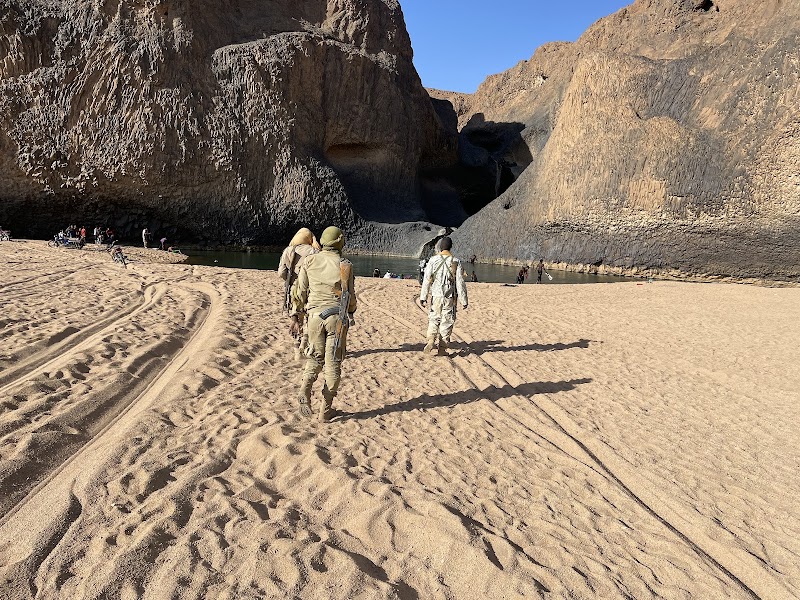
Aïr and Ténéré Natural Reserves (regional proximity) Adventures
The Aïr and Ténéré Natural Reserves encompass a vast desert landscape featuring dramatic mountain ranges and expansive sand dunes, offering rare opportunities for remote desert exploration and wildlife observation in the Sahara.
About Aïr and Ténéré Natural Reserves (regional proximity)

Located in northern Niger, the Aïr and Ténéré Natural Reserves cover a large portion of the Sahara Desert, combining rugged mountain terrain with some of the world's most expansive sand dune fields. The Aïr Mountains form a rocky highland area rich in geological formations such as volcanic peaks, deep gorges, and plateaus, contrasting sharply with the flat, arid Ténéré desert to the east. This UNESCO World Heritage-listed site is one of the largest protected areas in Africa, reflecting significant biodiversity despite harsh climatic conditions. Unique desert-adapted species, including addax antelope, Saharan cheetah, and various reptiles, inhabit the reserve. Historically, the area has been a crossroads for Saharan nomadic cultures such as the Tuareg, and archaeological sites within the reserve hold rock art and burial grounds that date back thousands of years. Recreational opportunities are limited due to the extreme environment but include guided desert treks, bird watching, and off-road exploration, providing an immersive adventure for visitors prepared for remoteness and challenging terrain. Key landmarks in the area include the towering volcanic peaks of the Aïr massif, the vast sand seas of the Ténéré, and historic caravan trails. The reserve’s appeal lies in its raw, untouched desert wilderness and the chance to witness one of the Sahara’s few remaining natural havens. Access requires careful preparation and often local guidance owing to the difficult environment and limited infrastructure.
Highlights
Volcanic peaks of the Aïr Mountains, including Mont Idoukal-n-Taghès
Expansive sand dune fields known as the Ténéré desert
Habitat of rare desert-adapted species including addax and Saharan cheetah
Ancient rock art sites and archaeological remains
Historic trans-Saharan caravan routes crossing the region
Notable Natural Features
Mont Idoukal-n-Taghès
The highest peak in the Aïr Mountains, offering dramatic rocky landscapes and panoramic views.
Ténéré Sand Sea
A vast area of shifting sand dunes forming part of one of the largest desert regions in the Sahara.
Rock Art Sites
Ancient engravings and paintings that provide insight into prehistoric cultures and Saharan history.
